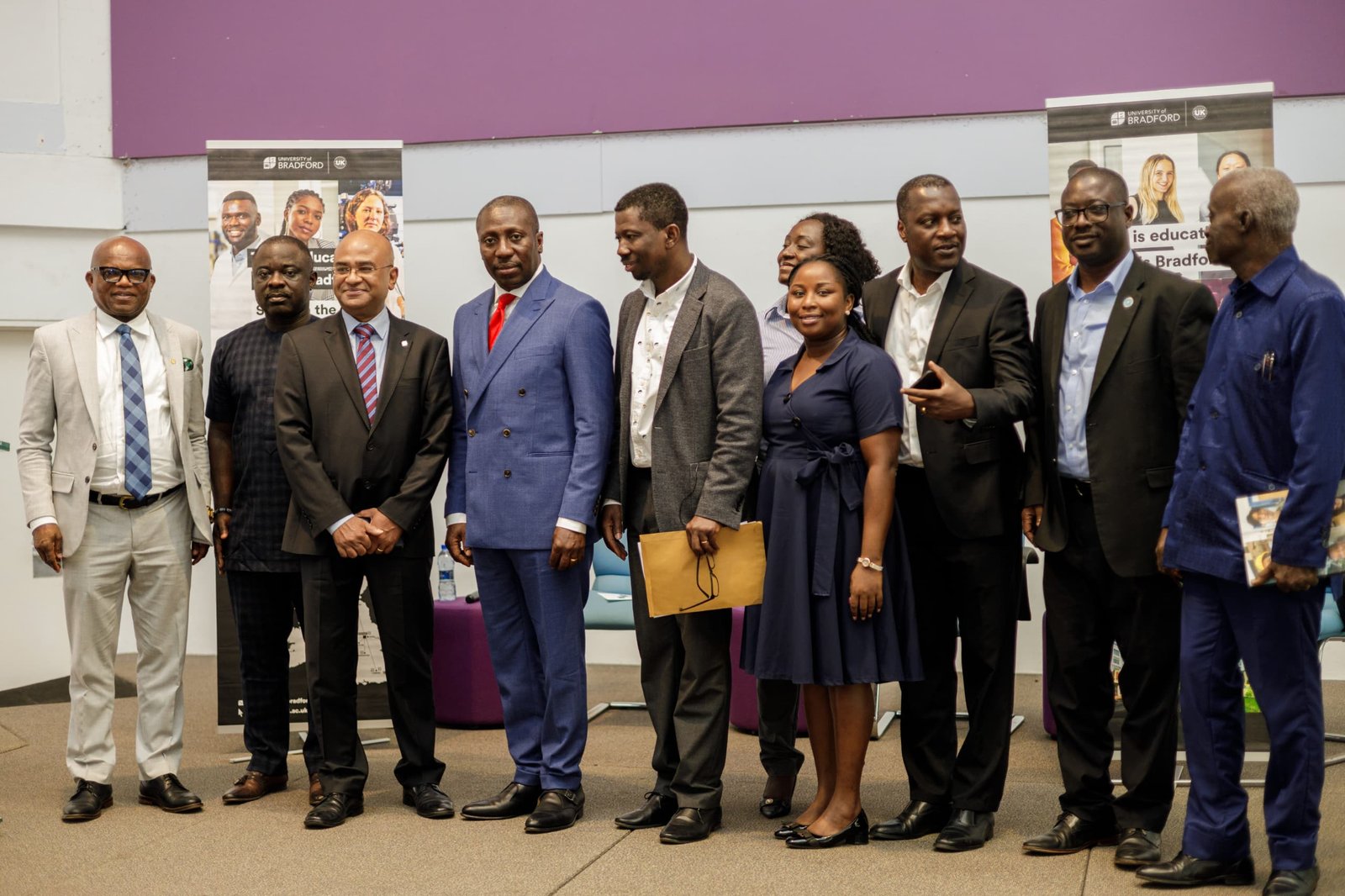
 In the aftermath of the global pandemic, nations worldwide have faced the harsh realities of economic collapse. However, Ghana shines as a beacon of resilience and stability amidst the chaos, says the Majority Leader in Parliament, Alexander Afenyo-Markin.
In the aftermath of the global pandemic, nations worldwide have faced the harsh realities of economic collapse. However, Ghana shines as a beacon of resilience and stability amidst the chaos, says the Majority Leader in Parliament, Alexander Afenyo-Markin.
He made these remarks during the International Knowledge Transfer Networking (IKTN) conference hosted by the University of Bradford (UK), in partnership with the British Council Ghana, yesterday in Accra. It was under the theme “Responsible Leadership for Sustainable and Inclusive Growth”.
Mr Afenyo-Markin emphasised the dire situations faced by many nations, including instability, insecurity, protests and economic hardships exacerbated by unemployment. He said despite these challenges, Ghana had remained relatively unscathed.
The Majority Leader attributed Ghana’s stability to the visionary leadership of President Nana Akufo-Addo and the support of its resilient citizens.
“In these times, the beacon of responsible leadership has never been this brighter. Under President Nana Akufo-Addo’s stewardship, we’ve shown the world what it means to navigate through economic storms with sacrifice, courage and unwavering determination,” he stressed.
Responsible stewardship
He added that under President Akufo-Addo’s stewardship, Ghana had implemented strategic policies and measures that cushioned the blow of the pandemic’s impact, fostering economic recovery, and maintaining social cohesion.
He said the government’s proactive and innovative approaches, including the swift implementation of social interventions and economic relief programs, had been instrumental in stabilizing the economy and safeguarding the livelihoods of Ghanaians.
This exceptional leadership, he intimated, underscores the importance of vision, resolve and decisive action in steering a nation through turbulent times.
In his view, Akufo-Addo government’s adept handling of this crisis not only preserved the nation’s stability, but also set a solid foundation for sustainable growth and development, demonstrating that even in the face of overwhelming challenges, visionary leadership can indeed make a profound difference.
Compelling proof
Underlining his submission with compelling proof, he revealed that a pioneering study conducted by the Ghana Statistical Service, with the collaboration of international powerhouses such as the World Bank, the European Union and the United Nations Development Programme, had sparked a beacon of optimism.
He pointed out that “it reveals that approximately 90% of our companies affected by the COVID-19 crisis have successfully recovered and are flourishing once more”.
Additionally, the research, titled ‘Ghana Business Tracker Wave 4,’ explored the experiences of over 3,157 businesses, including significant input from 60 European companies, carried out between April and July 2023. The findings, he indicated, showcase a dynamic resurgence and resilience.
“It’s a narrative not just about recovery but significant advancement. These businesses have not only endured but also emerged stronger, experiencing a boost in cash flow and an impressive 4.2% increase in nominal sales from 2021 to 2022,” he said.
Moreover, he mentioned that the engagement with European firms had led to a notable 11% rise in sales, illustrating the power of international cooperation.
Role of UK high education
He stressed the essential role that UK higher education institutions play in nurturing leaders capable of addressing the challenges of increasingly complex world.
“As Ghana strives to deepen the quality of its higher education, partnerships with UK institutions offer invaluable opportunities for knowledge exchange, capacity building,” he said.
He added that it would lead to the development of a new generation of leaders equipped with the skills, values and vision to drive sustainable development and positive change in Ghana and beyond. He emphasised that government’s goal is to nurture a generation equipped for Ghana’s economic and social advancement.
“Recognizing challenges in access, equity, and quality, we’ve embarked on initiatives to elevate our tertiary education system. This includes upgrading teacher education, embracing international partnerships, and preparing our graduates for the global job market,” he mentioned.
The engagement
For his part, an Associate Pro-Vice Chancellor, Global Engagement and Partnerships at the University of Bradford, Professor Vishanth Weerakkody, said for many years, the University of Bradford had been actively involved in knowledge transfer networking events within the UK, engaging with local stakeholders such as businesses, non-governmental organizations, charities, and community members in Bradford and West Yorkshire.
He explained that the event in Accra represented the university’s first foray into organizing such an initiative on an international scale.
He reaffirmed the university’s commitment to educating young populations about the various education programmes offered at the University of Bradford. He mentioned the availability of numerous scholarships and highlighted the university’s leading position in applied arts and artificial intelligence (AI) in the UK.
“AI plays a pivotal role in international development, particularly in driving digitization and economic growth. At our university, we are at the forefront of AI research and education,” he indicated.
He emphasised the university’s leadership in the fields of social economics and sustainability, areas critical for addressing contemporary global challenges.
“We’ll prepare our young populations for the evolving job markets, both at the global and regional levels. Our aim is to provide students with a comprehensive understanding of these topics and equip them with the necessary skills to thrive in today’s dynamic world,” he added.
Inclusivity
Dr. Joseph Kwadwo Danquah, Assistant Professor of Human Capital Development, Innovation and Entrepreneurship at Bradford University, emphasised the importance of inclusivity in national development.
He noted that leaving anyone behind would be detrimental to progress, saying “inclusivity is very critical; we cannot as a country leave anybody behind.”
He emphasised the need to include all demographics, including men, women and children, in development efforts. Supporting his argument with data from the World Bank, Dr. Danquah noted that the statistics clearly indicated the government was on the right trajectory.
He expressed the hope that responsible leadership would continue to guide the country towards achieving its development goals.


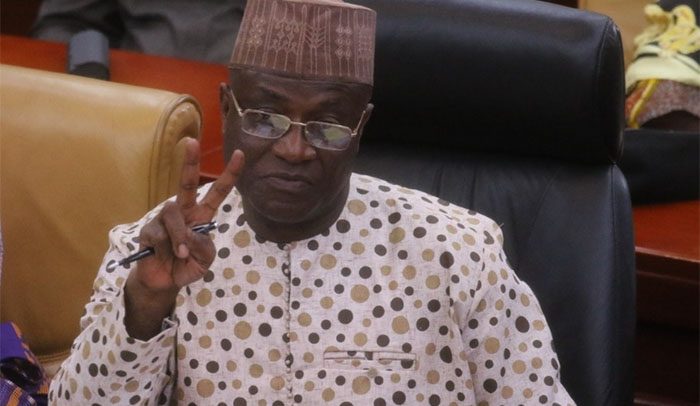

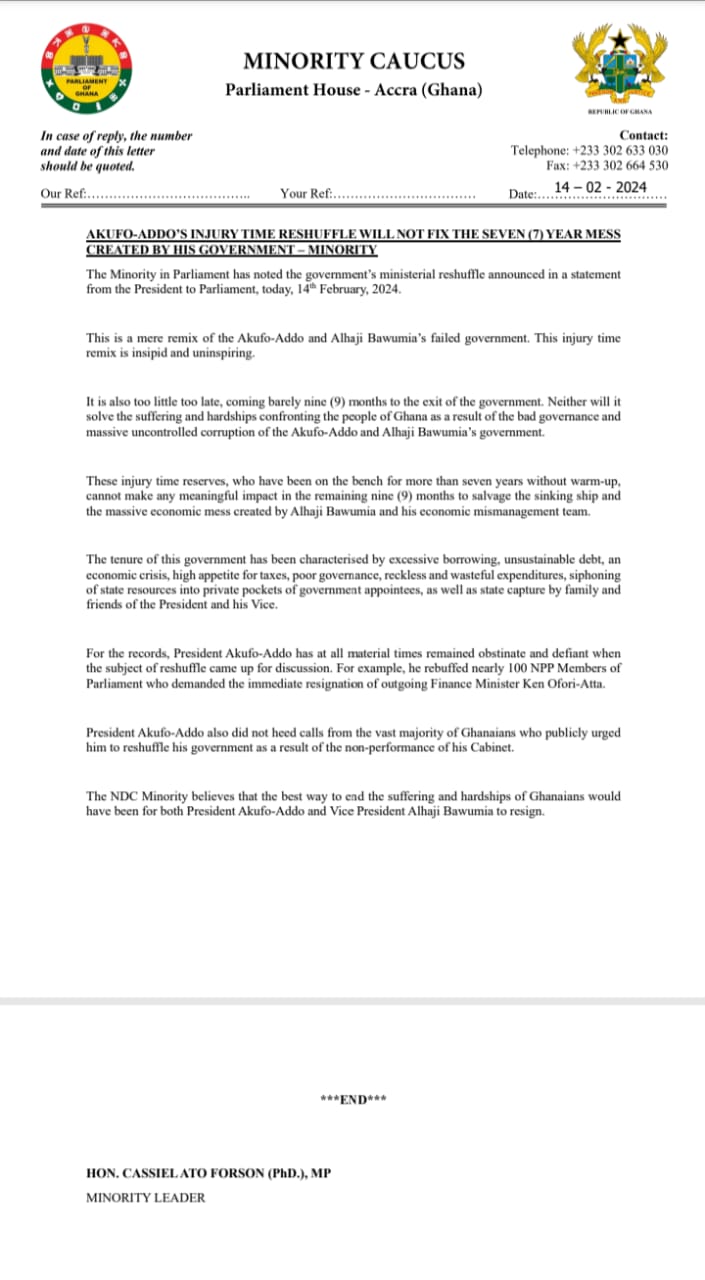

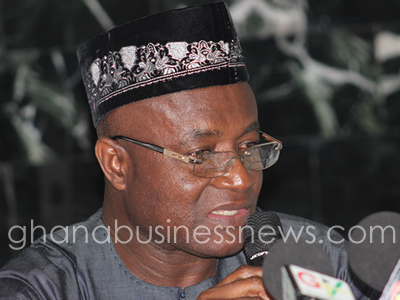
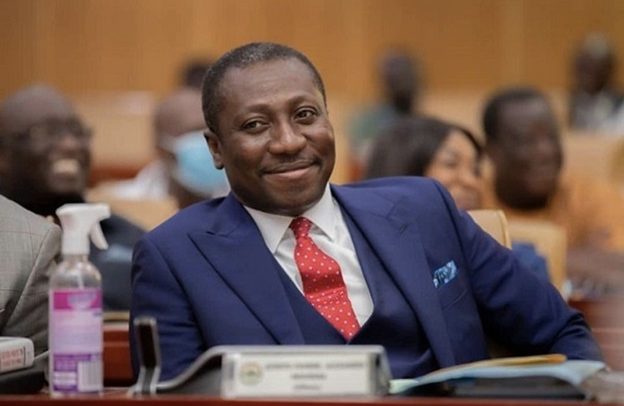
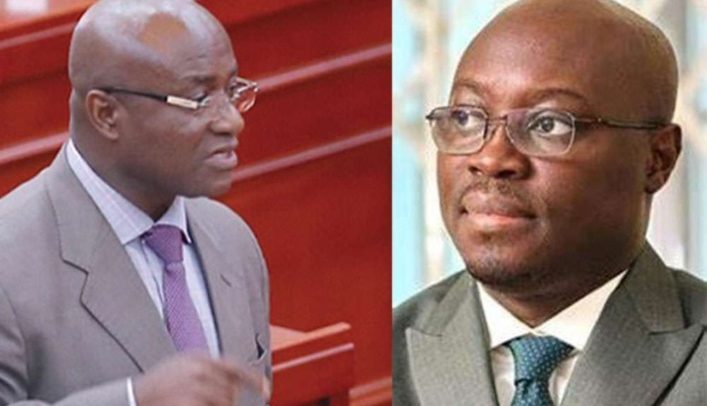















Facebook
Twitter
Pinterest
Instagram
Google+
YouTube
LinkedIn
RSS